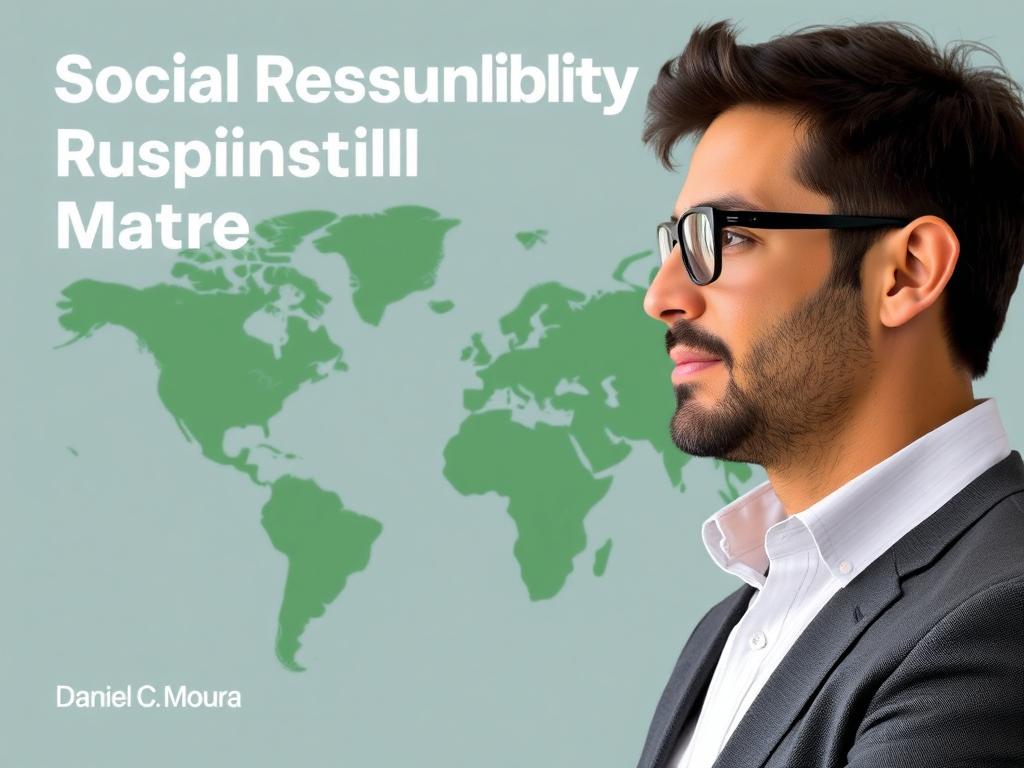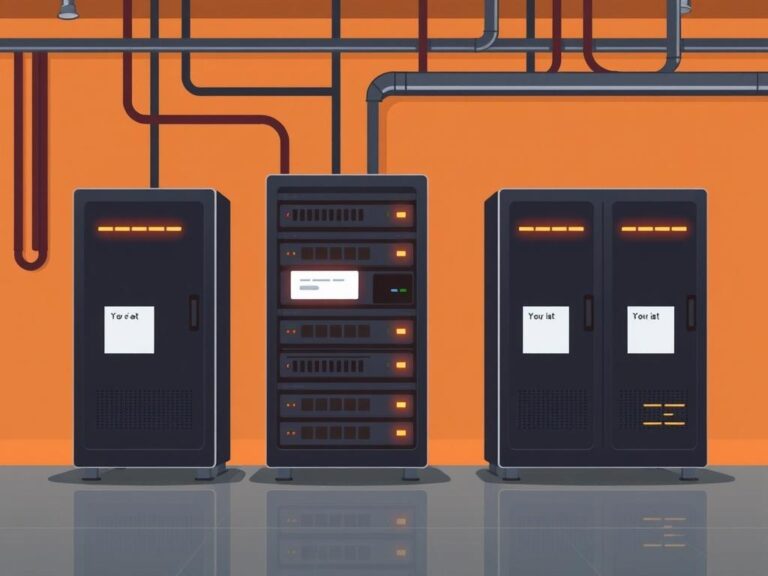
Understanding the Core of Daniel C. Moura’s Business Approach
When we explore the realm of contemporary business models, one name that consistently stands out is Daniel C. Moura. Known for his innovative strategies and forward-thinking approach, Moura integrates social responsibility deeply into his business framework. But what exactly does social responsibility mean within the context of Moura’s ventures? At its heart, it involves a commitment to ethical practices, environmental sustainability, and active contributions to society beyond mere profit-making. Moura’s business model is a perfect example of how social responsibility can drive growth while fostering meaningful relationships with customers, employees, and communities.
The Pillars of Social Responsibility in Moura’s Model
Daniel C. Moura’s business model rests on several key pillars that ensure social responsibility remains front and center. These include ethical governance, environmental stewardship, community engagement, and employee welfare. Each plays an essential role in defining how his organizations operate on a daily basis.
Ethical Governance: Transparency and Integrity

Central to Daniel C. Moura’s social responsibility is ethical governance. His companies prioritize transparency with stakeholders, adhering strictly to ethical practices in every business decision. This creates an atmosphere of trust and fairness, a foundation that proves essential in today’s increasingly scrutinized markets.
Environmental Stewardship: Sustainability as a Business Imperative
Moura recognizes that environmental sustainability is not just a trend but a necessity. By implementing green initiatives—such as reducing waste, incorporating renewable energy sources, and designing eco-friendly products—his business model actively reduces environmental impact. This commitment aligns long-term business success with the health of our planet, demonstrating that profitability and sustainability are not mutually exclusive.
Community Engagement: Giving Back Meaningfully
For Daniel C. Moura, social responsibility means more than internal company policies. It extends into active support and involvement in local communities. Whether through philanthropy, partnerships with nonprofit organizations, or employee volunteer programs, Moura’s business model delivers tangible benefits to society, fostering goodwill and social capital.
Employee Welfare: Cultivating a Supportive Workplace
Another integral aspect is the focus on employee welfare. Moura ensures fair labor practices, opportunities for growth, and inclusive workplace policies. By investing in human capital, he not only enhances productivity but also builds loyal teams motivated by shared values.
Why Social Responsibility is Integral to Moura’s Business Success
Social responsibility isn’t just a moral choice for Daniel C. Moura; it’s a strategic one. The impacts ripple across various facets of business operations, contributing to sustained success. Here’s how:
- Brand Loyalty: Consumers today prefer brands that align with their values. Moura’s commitment to ethical practices boosts customer trust and loyalty.
- Risk Management: By adhering to responsible environmental and governance standards, his businesses avoid legal pitfalls and reputational damage.
- Employee Retention: Supportive work environments reduce turnover and attract skilled talent, critical for competitive advantage.
- Long-Term Perspective: Investing in sustainable practices protects resources and ensures viability over decades.
How Moura’s Model Compares to Other Business Frameworks
It’s valuable to benchmark Daniel C. Moura’s model against traditional and modern corporate approaches. The following table highlights key differences:
| Aspect | Traditional Business Model | Daniel C. Moura’s Social Responsibility Model |
|---|---|---|
| Primary Focus | Maximizing short-term profits | Balancing profits with social and environmental impact |
| Stakeholder Engagement | Shareholders primarily | Customers, employees, community, environment |
| Environmental Policy | Minimal compliance | Proactive environmental stewardship |
| Employee Policies | Basic labor standards | Comprehensive welfare and growth opportunities |
| Community Relations | Limited corporate philanthropy | Active community engagement and support |
Implementing Social Responsibility: Lessons from Daniel C. Moura

If you’re inspired to incorporate social responsibility like Daniel C. Moura, there are actionable steps to take. Begin by assessing your company’s current impact areas—environmental, social, and economic. Next, develop clear goals for improvement, from reducing carbon footprint to enhancing employee diversity. Engaging stakeholders through open communication can help build alignment and trust throughout the process.
Here is a simple roadmap inspired by Moura’s approach:
- Conduct a comprehensive impact audit
- Identify areas where ethical practices can be enhanced
- Implement sustainability initiatives aligned with company values
- Foster partnerships with community organizations
- Develop ongoing employee training on social responsibility
- Measure, report, and refine based on results and feedback
Challenges and Opportunities in Embracing Social Responsibility

While Daniel C. Moura’s model shows clear benefits, there are challenges to consider when embedding social responsibility in business. These include initial costs, balancing diverse stakeholder demands, and maintaining transparency without risking competitive disadvantage. However, the opportunities far outweigh the difficulties. Business models infused with social responsibility appeal to a growing market of conscious consumers, reduce risks associated with unethical behaviors, and foster deeper employee engagement.
Challenges:
- Higher upfront costs for sustainable materials and processes
- Complex decision-making when balancing profit with purpose
- Demand for continual monitoring and reporting of social initiatives
Opportunities:
- Enhanced reputation and stronger customer loyalty
- Access to new markets valuing ethical products
- Increased employee satisfaction and retention
- Positive long-term financial performance
Future Outlook: The Growing Importance of Social Responsibility in Business
Looking ahead, companies like those led by Daniel C. Moura are increasingly paving the way toward a new paradigm where profit and purpose go hand in hand. The global push for sustainability, social justice, and ethical governance will continue to raise expectations across industries. Businesses ignoring social responsibility risk obsolescence, while those embracing it—like Moura—will thrive by adapting to shifting societal demands and regulatory landscapes.
Key Trends to Watch:
- Rising consumer demand for transparency and ethical sourcing
- Increasing government regulations around environmental & social standards
- Technological advances facilitating sustainable innovations
- Growing influence of socially responsible investing
Conclusion
In summing up, Daniel C. Moura’s business model offers a compelling blueprint for integrating social responsibility into the fabric of successful entrepreneurship. His approach demonstrates that businesses can achieve financial growth while honoring ethical duties, environmental sustainability, and community welfare. By embracing transparent governance, prioritizing employee welfare, investing in sustainability, and engaging meaningfully with society, Moura proves that social responsibility is not merely an obligation but a strategic advantage. For companies seeking long-term success in today’s conscientious market, embedding social responsibility in their business model isn’t just an option—it’s essential. Following his example, businesses can forge a path that benefits not just shareholders but everyone touched by their operations.





Recent Comments